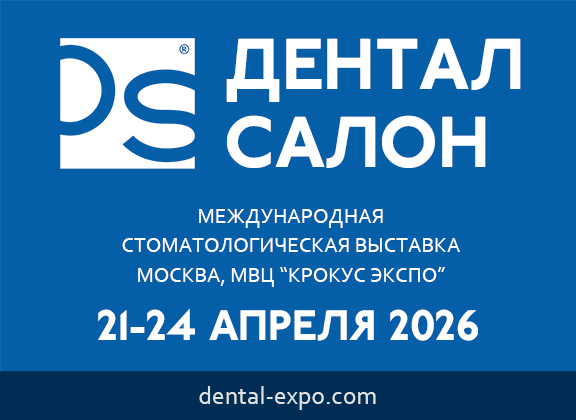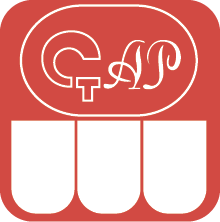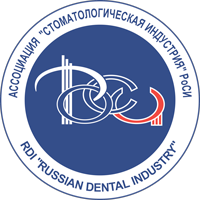DOI:
10.37988/1811-153X_2020_4_81The incidence of complications in patients after orthopedic treatment with removable dentures
Abstract
During the adaptation period of removable dentures, various complications can arise, the study of which is useful to ensure a good clinical result. Objectives — to assess the frequency and type of prosthetic complications depending on the type and properties of removable dentures in patients with partial and complete adentia. Materials and methods. The study included 74 patients (28 men and 46 women) with partial and complete adentia, the average age was 60.9±3.42 years. The patients were divided into 2 groups: Group I — 36 patients who received removable acrylic dentures with silver nanoparticles; Group II — 38 patients with traditional removable plate acrylic dentures. Used acrylic plastic Ftorax. The state of the oral mucosa was assessed according to Supple, the edentulous upper jaw — according to Schroeder, and the toothless lower jaw — according to Keller. 0.01—0.03 wt% nanocrystalline silver was introduced into the acrylic polymer. Statistica software was used for statistical analysis. Results. The most common complications in the present study were loss of retention of the prosthesis (24.3%), pain (18.9%), irritation or ulceration of the oral mucosa (17.6%). Poor prosthesis stabilization was noted in group I in 22.2%, in group II — in 26.3% of patients. The frequency of prosthetic stomatitis and traumatic periodontitis in group II was 4.7 times higher than in group I (p<0.001) and 1.4 times (p<0.05), respectively. In most cases, there were no significant differences between the incidence of complications and types of prostheses. Conclusion. Based on the results of this study, it can be concluded that loss of retention of the prosthesis is the most common complication associated with subsequent ulceration. There was little difference between the types of prostheses and complications. Comparatively fewer complications are observed when silver nanoparticles are included in removable acrylic dentures.
Key words:
full and partial removable lamellar dentures, acrylic, silver nanoparticles, complications, types of denturesFor Citation
References
- Trunin D.A., Tlustenko V.P., Sadykov M.I., Nesterov A.M., Chistyakova M.S. Results of orthopedic treatment of patients with complete and partial absence of teeth. — Rus Dent J. — 2017; 5: 266—70 (in Russ.).
- Trunin D.A., Sadykov M.I., Nesterov A.M., Postnikov M.A., Nesterov G.M., Chistyakova M.S. The problem of orthopaedic dental treatment in patients with free-end edentulous spaces. — Medical News of the North Caucasus. — 2018; 13 (2): 441—6 (in Russ.).
- Sadykov M.I., Trunin D.A., Nesterov A.M., Chistyakova M.S. Immunological and microbiological status of the oral cavity in elderly patients using removable laminar dentures. — Science and Innovations in Medicine. — 2016; 2 (2): 50—4 (in Russ.).
- Bukleta M.S., Bukleta D., Selmani M., Kuhar M. Frequency of Complete and Removable Partial Denture Treatment in the Primary Health Centres in Three Different Regions of Kosovo from 2002 to 2013. — Zdr Varst. — 2019; 58 (3): 104—111. PMID: 3127543
- Zitzmann N.U., Hagmann E., Weiger R. What is the prevalence of various types of prosthetic dental restorations in Europe? — Clin Oral Implants Res. — 2007; 18, suppl. 3: 20—33. PMID: 17594367
- Trezubov V.N., Semyonov S.S., Afinogenov G.E., Afinogenova A.G., Sapronova O.N. Creation of an antibacterial material containing nanosilver for bases of removable dentures. — The Dental Institute. — 2010; 2 (47): 22—3 (in Russ.).
- Lara H.H., Romero-Urbina D.G., Pierce C., Lopez-Ribot J.L., Arellano-Jiménez M.J., Jose-Yacaman M. Effect of silver nanoparticles on Candida albicans biofilms: an ultrastructural study. — J Nanobiotechnology. — 2015; 13: 91. PMID: 26666378
- Selvaraj M., Pandurangan P., Ramasami N., Rajendran S.B., Sangilimuthu S.N., Perumal P. Highly potential antifungal activity of quantum-sized silver nanoparticles against Candida albicans. — Appl Biochem Biotechnol. — 2014; 173 (1): 55—66. PMID: 24648138
- Monteiro D.R., Takamiya A.S., Feresin L.P., Gorup L.F., de Camargo E.R., Delbem A.C.B., Henriques M., Barbosa D.B. Susceptibility of Candida albicans and Candida glabrata biofilms to silver nanoparticles in intermediate and mature development phases. — J Prosthodont Res. — 2015; 59 (1): 42—8. PMID: 25168655
- Yin I.X., Zhang J., Zhao I.S., Mei M.L., Li Q., Chu C.H. The antibacterial mechanism of silver nanoparticles and its application in dentistry. — Int J Nanomedicine. — 2020; 15: 2555—62. PMID: 32368040
- Tanoue N., Matsuda Y., Yanagida H., Matsumura H., Sawase T. Factors affecting the bond strength of denture base and reline acrylic resins to base metal materials. — J Appl Oral Sci. — 2013; 21 (4): 320—6. PMID: 24037070
- Panakhov N.A., Bayramov Y.I., Musayev E.R. The impact of the second clinical stage on ineffective prosthetic treatment in full overdenture restoration. — Bul. Contemporary Clin. Med. — 2019; 12 (3): 44—7 (In Russ.).
- Safarov A.M. Microbial contamination of the oral cavity when wearing removable dentures based on various materials. — Modern dentistry (Belarus). — 2010; 2: 103—5 (In Russ.).
- Shende S.A. Evaluation of complication rate and patient satisfaction with removable denture. — Int. J. Com. Health Med. Research. — 2017; 2: 49—55. http://ijchmr.com
- Chesnokov V.A., Zherebtsov V.V. Features of patient adaptation during orthopedic rehabilitation based on an assessment of the quality of life and the degree of fixation of removable plate prostheses. — Pacific Med. J. — 2020; 2: 25—8. (in Russ.).
- Bilhan H., Erdogan O., Ergin S., Celik M., Ates G., Geckili O. Complication rates and patient satisfaction with removable dentures. — J. Adv. Prosthodont. — 2012; 4 (2): 109—15. PMID: 22737317
- Shams A., Tavanafar S., Dastjerdi M.R., Chaijan K.A. Patient satisfaction and complication rates after delivery of removable partial dentures: A 4-year retrospective study. — SRM J Res Dent Sci [serial online] — 2015; 4: 225—9. DOI: 10.4103/0976—433X.170247
- Akeel R. Usage of removable partial dentures in Saudi male patients after 1 year telephone interview. — Saudi Dent J. — 2010; 22 (3): 125—8. PMID: 23960487










